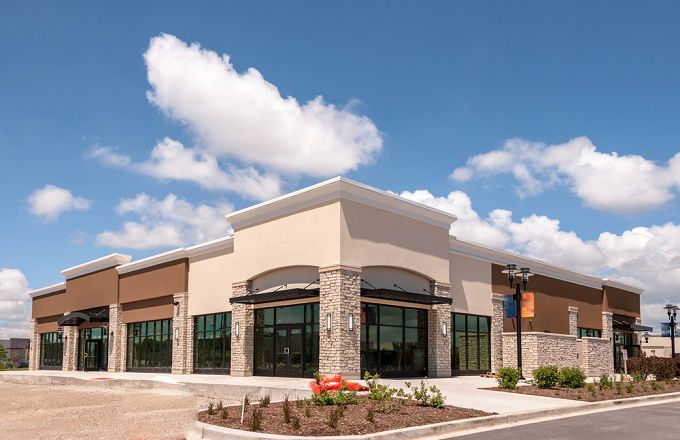Investing in commercial real estate presents a world of opportunities for individuals seeking to diversify their investment portfolios and capitalize on the potential for long-term financial prosperity. While the realm of commercial real estate may seem complex and daunting, understanding the key aspects of this market can empower investors to navigate the industry with confidence and make informed investment decisions. In this article, we will explore the lucrative possibilities and challenges associated with investing in commercial real estate. From understanding different property types to evaluating financing options and legal considerations, we will delve into the strategies and insights necessary to thrive in this dynamic sector.
Understanding Commercial Real Estate
Commercial real estate refers to properties that are primarily used for business or income-generating purposes. This includes office buildings, retail spaces, industrial facilities, hotels, and multifamily residential properties with five or more units. Unlike residential real estate, which focuses on housing for individuals and families, commercial real estate caters to the needs of businesses, corporations, and investors.
Opportunities in Commercial Real Estate
Investing in commercial real estate offers several potential opportunities:
Potential for Higher Returns
Commercial real estate investments have the potential to generate higher returns compared to other investment vehicles, such as stocks or bonds. Rental income from commercial properties is typically higher than residential properties, especially in prime locations with strong demand. Additionally, commercial real estate investments offer the possibility of capital appreciation, where the value of the property increases over time.
Diversification
Investing in commercial real estate allows for diversification of investment portfolios. Commercial properties have historically shown lower correlation with other asset classes, which means they can act as a hedge against market volatility. By including commercial real estate in your investment strategy, you can reduce overall risk and potentially enhance portfolio performance.
Long-Term Leases
Commercial leases are typically longer in duration compared to residential leases. Tenants often sign leases for several years, providing a stable income stream for investors. Long-term leases reduce the risk of frequent tenant turnover, vacancy periods, and associated costs. This stability is particularly attractive for investors seeking steady cash flow and reliable returns.
Challenges in Commercial Real Estate
Investing in commercial real estate also comes with its challenges:
Higher Initial Investment
Investing in commercial real estate often requires a higher initial investment compared to residential properties. Commercial properties tend to be more expensive, and financing options may differ from those available for residential properties. Investors need to have sufficient capital or access to financing tailored for commercial real estate investment.
Market Volatility
The commercial real estate market is subject to economic cycles and fluctuations. Changes in interest rates, economic conditions, and industry trends can impact property values and rental demand. Investors must conduct thorough market research and analysis to identify stable and growing markets, as well as anticipate potential risks and challenges.
Property Management
Commercial properties often require more intensive management compared to residential properties. The responsibilities can include tenant management, property maintenance, lease negotiations, and compliance with regulations. Investors must decide whether to manage properties themselves or hire professional property management services, which can impact overall costs and returns.
Key Considerations for Investing in Commercial Real Estate
When investing in commercial real estate, it’s important to consider the following factors:
Property Selection
Careful property selection is crucial in commercial real estate investment. Consider factors such as location, market demand, growth potential, and the specific needs of the target tenant base. Analyze the area’s economic indicators, infrastructure development, and proximity to transportation hubs or commercial centers. Conduct due diligence to assess the property’s condition, potential renovation or improvement costs, and any legal or environmental considerations.
Financing Options
Explore different financing options tailored for commercial real estate investment, such as commercial mortgages, bridge loans, or partnerships with other investors. Evaluate interest rates, loan terms, repayment options, and associated fees. Seek the guidance of financial professionals to identify the financing strategy that aligns with your investment goals and risk tolerance.
Legal Considerations
Understand the legal aspects of commercial real estate investment, including zoning regulations, permits, lease agreements, and tax implications. Consult with real estate attorneys or experts familiar with local laws and regulations to ensure compliance and minimize potential risks.
Market Research and Analysis
Conduct thorough market research and analysis to identify emerging trends, growth potential, and investment opportunities. Evaluate vacancy rates, rental prices, comparable properties, and the overall economic conditions of the target market. Utilize market data, industry reports, and expert insights to make informed investment decisions.
Investing in commercial real estate presents both opportunities and challenges for investors seeking long-term financial prosperity. By understanding the nuances of this dynamic sector, including property selection, financing options, legal considerations, and market analysis, investors can navigate the industry with confidence and maximize their chances of success.
As with any investment, thorough research, due diligence, and a well-defined investment strategy are key to unlocking the full potential of commercial real estate. Embrace the possibilities offered by this lucrative market, unravel industry secrets, and embark on a rewarding journey toward financial prosperity through commercial real estate investment.









